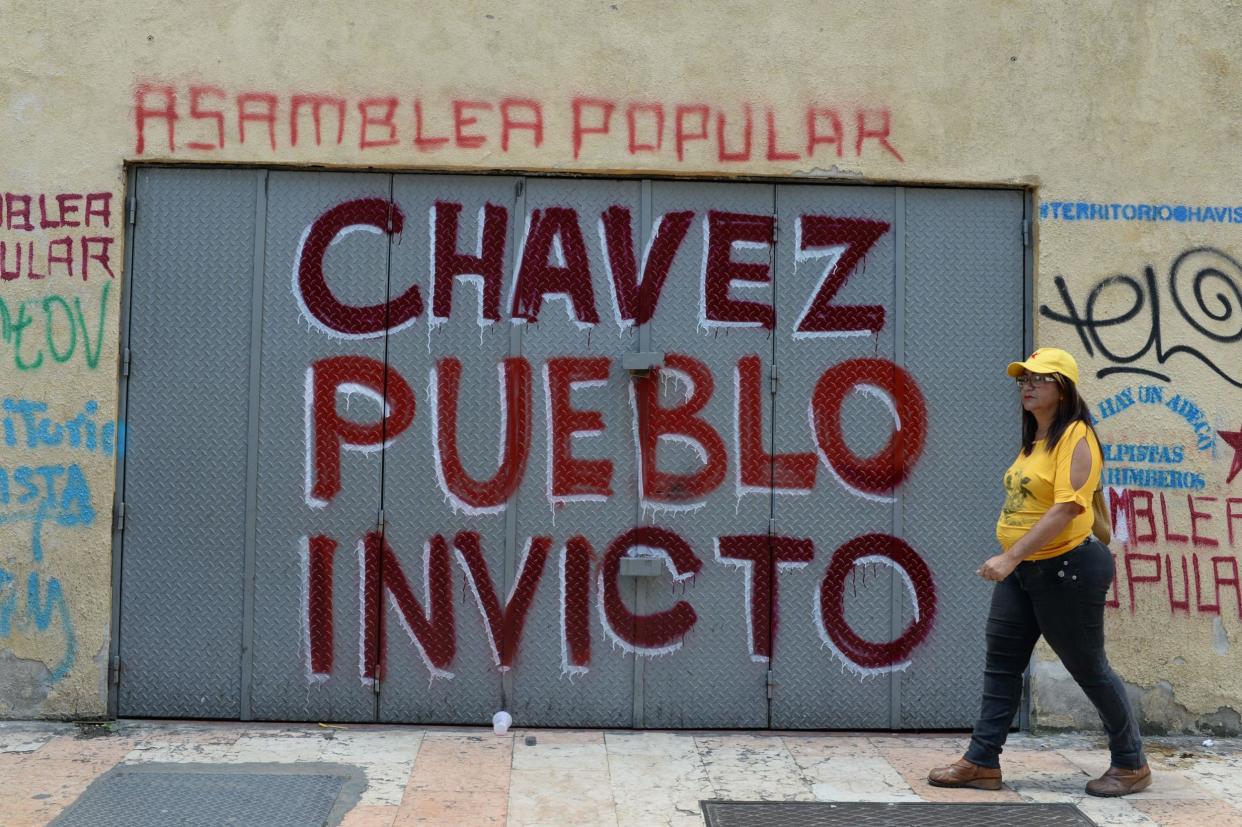Venezuela court orders arrest of senior opposition leader, as President Nicholas Maduro clings to power

Venezuela’s top court has ordered the arrest and detention of a senior opposition leader behind recent protests, as President Nicholas Maduro seeks to hold onto power amid mounting international condemnation.
The Supreme Court ordered the arrest of Ramon Muchacho, one of Caracas’s five mayors, for refusing an order to remove barricades set up by anti-government protesters. Critics of the government said the move was a violation of due process and a blatant attempt to punish opponents.
Mr Muchacho, who is mayor of the Caracas district of Chacao, did not appear at the hearing and said on Twitter: “All the weight of revolutionary injustice has fallen on my shoulders.”
Todo el peso de la injusticia revolucionaria ha caído sobre mi y sobre Chacao. Se nos condena por luchar por un Cambio en Venezuela! pic.twitter.com/tu0XwlE96T
— RAMÓN MUCHACHO (@ramonmuchacho) August 8, 2017
He later emailed supporters, saying: “We are being condemned for doing our job, for guaranteeing the legitimate right to peaceful protest and the right of all Venezuelans to exercise their civil and political rights.”
He added: “The coming hours will be difficult for me.”
The move comes after Mr Maduro pressed ahead with a vote to establish a controversial new assembly that has been packed with his supporters and which his critics say will have unlimited powers. There is a dispute as to how many people took part in a vote for the assembly last month, but opposition parties boycotted the process.
The move was condemned by the EU, US and Britain. Mr Maduro denounced the criticism from Washington as nothing more than the latest attempt by the US to interfere in the country’s affairs. The head of the CIA suggested last month the agency was working with Mexico and Colombia to bring about “a transition” in Caracas.
Polls suggest that Mr Maduro’s approval rating may be as low as 20 per cent. Some observers believe that many supporters of the late Hugo Chavez, Mr Maduro’s predecessor, have lost sympathy as the economic situation has worsened, and food shortages intensified.
Last month, the US introduced new sanctions against Mr Maduro and a dozen of his closest supporters.
At least 124 people have been killed in protests against the government, yet it is unclear precisely how many of those were opponents of the government and how many were police or troops.
UN human rights investigators believe security forces were responsible for at least 46 deaths, and pro-government armed groups were responsible for 27.
NotiPatria: Venezuela siempre será una Patria Victoriosa, porque somos el Pueblo Glorioso de Simón Bolívar https://t.co/UPzk3dXjf0
— Nicolás Maduro (@NicolasMaduro) August 8, 2017
The Associated Press said the Supreme Court has issued injunctions against nearly a dozen mayors of opposition municipalities, ordering them to prevent protesters from setting up barricades.
The court is hearing a similar case against the mayor of another Caracas district, David Smolansky of El Hatillo. Intelligence agents last month arrested Alfredo Ramos, the mayor of the city of Barquisimeto, on accusations that he violated the same order, the AP said.
On Tuesday, the US said Secretary-General Antonio Guterres was convinced the crisis in Venezuela could not be solved “through the imposition of unilateral measures” and urged the government and opposition to relaunch negotiations.
UN spokesman Stephane Dujarric said Mr Guterres “is concerned that recent developments could lead to further escalation of tensions and distance the country from a path conducive to a peaceful solution to its challenges”.
“At this critical time the secretary-general is urging negotiations for the benefit of the Venezuelan people,” he said.
In Geneva, UN human rights spokeswoman Ravina Shamdasani, said: “We are concerned that the situation in Venezuela is escalating and these patterns of human rights violations are showing no signs of abating.”
Larry Birns, Director of the Washington-based Council on Hemispheric Affairs, told The Independent Mr Maduro retained a number of hardcore supporters who would stand by him.
“Regardless of the hypocrisy of the US, Maduro is becoming more politically isolated every day,” he said. “If the opposition feels this is its moment, it will not budge.”
The US, which many believe has been seeking a change of government in Venezuela since Mr Chavez was first elected in 2002, repeated its rejection of the new constituent assembly.
Department spokeswoman Heather Nauer issued a series of tweets saying the US “will continue to use appropriate econ/diplomatic tools” to address the threat to democratic institutions in Venezuela.

